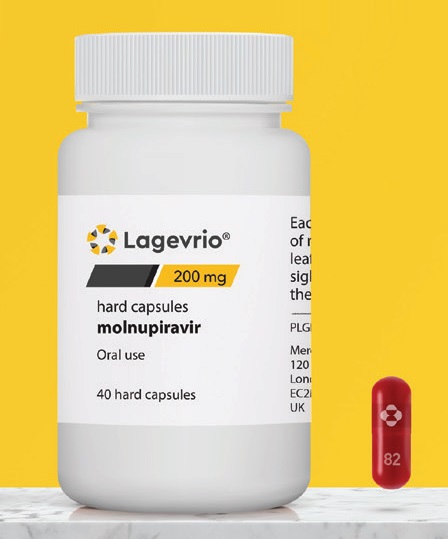MSD’s attempt to expand the indication of its Covid-19 oral treatment Lagevrio (molnupravir) to post-exposure preventive treatment has ended in failure.

MSD said Tuesday (local time) that it failed to prove the efficacy of Lagebrio in post-exposure preventive treatment due to the MOVe-AHEAD study, a global phase 3 trial of molnupravir.
In the MOCe-AHEAD study, researchers compared and evaluated Lagevrio’s Covid-19 prevention effects compared to placebo on 1,500 people who had not been infected by Covid-19 on the baseline but lived with those recently diagnosed with the pandemic.
After the trial, researchers found that between random allocation and the 14th day, the number of people confirmed to have Covid-19 in the Lagevrio group was 23.6 percent smaller than the placebo group but failed to attain a statistically significant result.
However, the company made it clear that such results have nothing to do with Lagevrio’s current indications.
“The clinical trial was not a study of therapy,” said Dr. Dean Y. Li, head of MSD’s Research Center. “The result does not affect the efficacy and safety data observed in the MOVe-OUT study, a phase 3 clinical trial on treating mild and moderate Covid-19.”
Dr. Li went on to say, “MSD will continue to focus on efforts to provide treatment for high-risk Covid-19 patients according to the indication already approved. Moreover, we are conducting studies on methods to give help to other infectious diseases, such as a respiratory syncytial virus (RSV).”
However, according to recent research results, Lagevrio’s role in the fight against the Covid-19 pandemic will likely be limited to treating the non-hospitalized, high-risk Covid-19 patient group.
In Korea, Lagevrio has won fast-track approval for emergency use authorization, along with Pfizer’s Paxlovid (nirmatrelvir/ritonavir) and AstraZeneca’s Evusheld (tixagevimab/cilgavimab).
Lagevrio and Paxlovid are oral treatments used as a cure for non-hospitalized high-risk patients, and Evesheld is the only injection approved as a preventive treatment.
Besides, Lagevrio has been approved for patients who cannot get injections or take Paxlovid. As a result of clinical trials, its effect in preventing severe disease fell far short of Paxlovid at 30 percent vs. 88 percent.
However, Paxlovid produces significant drug interactions and cannot be used with many other drugs, so the government has made such patients use Lagevrio as an alternative to Paxlovid.
Related articles
- Merck leaning on new phase 3 oncology assets to weather storm in 2023
- Keytruda narrowly survives as primary treatment for bladder cancer
- Pfizer's oral Covid-19 treatment got full approval in Korea. What about Korean oral drugs?
- 'MSD Korea's Lagevrio demonstrates promising efficacy in high-risk Covid-19 patients'

